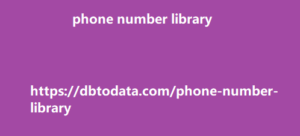Note: that the SERP checker allows recording history only in paid editions. Rank Tracker SERP Tracking History Rank Tracker also records the fluctuations on the SERPs, which can help you catch any volatility and predict upcoming Google algorithm updates. Competitor Tracking Rank Tracker lets you take a more detailed look into your search competition with its simple and robust Competitor Research module. With this feature, you can track the rankings of your competitors (up to 5 in the professional edition). And, if you are not aware of exactly who your competitors are, you can try the Suggest Competitors feature. This reviews the SERPs and finds domains similar to yours by taking a look at your common organic keyword rankings.
Rank Tracker Competitor Tracking Rank
Tracker Pros & Cons Rank Tracker is a desktop software, which has its own pros and cons. On the one hand, it requires you to download the installation pack and install the software. This might feel dull to users who are used to SaaS software where you sign in and access your data in a moment. On the other hand, the desktop version lets you own all your data on your PC. You can protect it and review it at any moment. You won’t have to deal with the memory drain that often happens in Chrome with web-based tools.
The SEO software has an original design
and runs several proprietary metrics. The SEO PowerSuite team also delivers regular updates about the tool, and I have found their support to be highly responsive. Key Takeaway If you’re looking for an all-around tool for your keyword tracking tool, check out Rank Tracker. You can track you and your competitor’s keywords across various search engines all within an easy-to-use interface.Website traffic is considered one of the main (if not the main) indicators of web success. But there is more to just attracting traffic- website owners and SEO professionals can benefit from doing website traffic data analysis and understanding website statistics and trends.
Whether you’re still growing your site or
already focusing on acquiring your target market- traffic data analysis can aid in your SEO and marketing strategies. What’s even better is that this can easily be done with free tools such as Google Analytics and Google Search Console. What are Google Analytics and Google Search Console? Google Analytics (GA) and Google Search Console (GSC) are two of Google’s own free tools that provide webmasters the ability to track website traffic attribution, search terms, and behavior data. Although there are a ton of options for more “feature-packed” tools that can help marketers to track these things plus other SEO factors of your website, these two already provide everything you need in understanding your website’s progress- both on the big picture and on an intricate standpoint.
My team at SEO Hacker also trusts these
two free tools from Google australia phone number library providing the necessary information for analyzing a website’s data on traffic and overall SEO performance. Google Analytics Google Analytics can be considered your main tool for knowing the entire story behind your website and being able to piece it together so you have a clear understanding of everything that’s going on on your website. It’s focused on providing information that is specific to what your website receives and how a user interacts with it. Google Search Console On the other hand, Google Search Console provides information about your website specifically in the aspect of how it is performing from Google’s search results.
Here, you can find information about your website
with respect to the following: Search Performance Google Indexing Google Page Experience Enhancements and security issues To put it simply, it presents data that allows you to see your website from Google’s perspective. Google Analytics Vs Google Search Console When it comes to analyzing your website’s data, these two free tools offered by Google provide different sets of information for us SEO professionals and marketers to utilize. The only similarity they have based on the data sets found in their respective dashboards can be stemmed from; Google Analytics providing user traffic data that can provide you an idea of your website’s authority in Google Search, and Google Search Console provides search data that can translate to traffic coming into your website.
It is very important to acknowledge that these
tools track traffic differently. There be sure to check out the will always be certain discrepancies in data but you’ll notice that the numbers presented are still very close to each other. What’s important to take note of is that these tools can give you what you need to know about a website’s growth and how it’s keeping up with certain trends. To learn how to set up Google Analytics, click here. To learn how to set up Google Search Console, click here. How To Approach Website Traffic Data Analysis Whether you’re providing website traffic data analysis for a newly SEO-optimized site or a well-seasoned website with multiple SEO strategies implemented; growth should always be your priority.
Information is king. And with the information
that Google Analytics and Google Search brazil data Console provide, it’s all about how well you understand that information and what you can do with it. How To Do Initial Website Audits with Google Search Console Let’s assume that you’ve already laid out the SEO foundation of your website prior to development. Before your website traffic data analysis, the first tool that you should be closely monitoring must be Google Search Console. Starting with the Index coverage section The Index Coverage report is where you can find how much of your web page is being crawled and indexed by Google.

